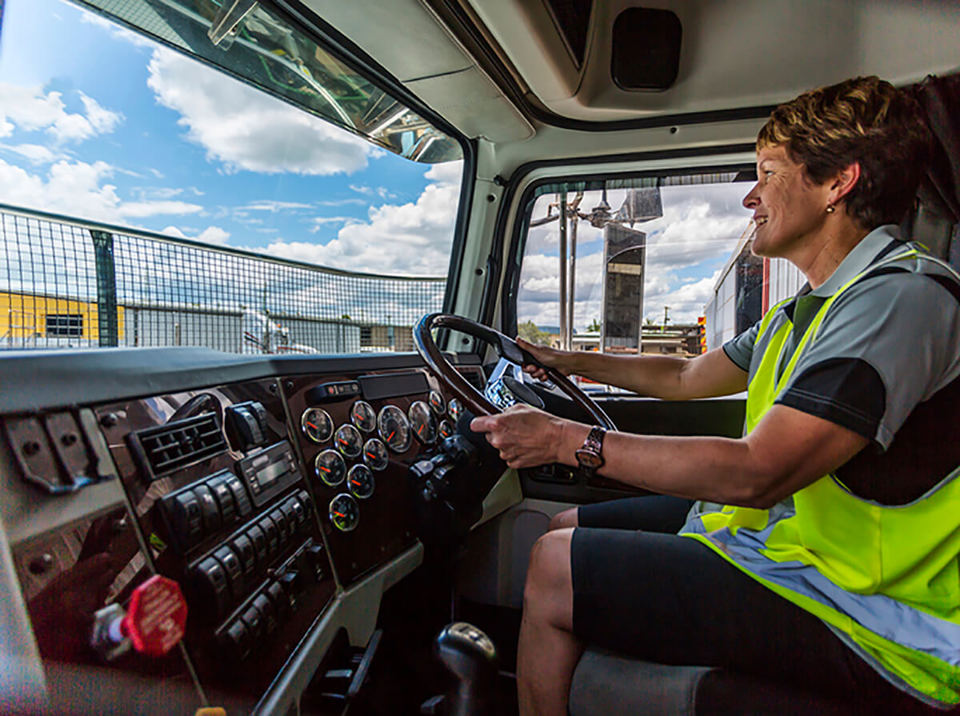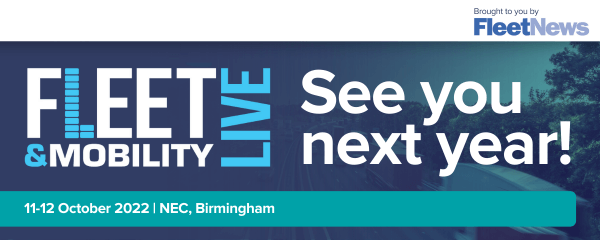The Department for Transport (DfT) says that 5,000 HGV drivers will be able to come to the UK for three months in the run-up to Christmas, providing short-term relief for the haulage industry.
Recruitment for additional short-term HGV drivers will begin in October and these visas will be valid until December 24.
THE GOVERNMENT HAS NOW EXTENDED THE VISA SCHEME - READ THE LATEST HERE.
The Government was forced to act after the shortage of drivers resulted in some fuel deliveries not being made at the end of last week and motorists panic buying over the weekend.
Motorists urged not to panic buy
Paul Hollick, chairman of the Association of Fleet Professionals (AFP), said: “It’s understandable fleets and drivers will worry about the reports that are being seen in the media, and also by the more close-to-home signs of queuing at some service stations, but our advice is very much not to panic.
“If you don’t need fuel immediately and join those queues, you will probably only make the situation worse because there is enough petrol and diesel, just a problem with distribution that should hopefully be largely resolved within a matter of days.
“We don’t want to see a return to 2001 when panic buying was as much an issue as the fuel shortages themselves. As much as possible, everyone should just follow normal fuel buying patterns.”
"As long as people continue to buy or store fuel that they don’t need then it will be difficult to replenish sites," Allan Davison, Hoyer Petrolog UK
Allan Davison, managing director of Hoyer Petrolog UK, says that fuel deliveries are getting through nationwide.
However, he added: "As long as people continue to buy or store fuel that they don’t need then it will be difficult to replenish sites. We once again urge people to calm down, fuel up when they need to and the situation will then be able to recover."
Alongside the temporary visa scheme for HGV drivers, ministers say that up to 4,000 people will also be able to take advantage of training courses.
The Department for Education (DfE) is investing up to £10 million to create to train up to 3,000 more people to become HGV drivers.
The free, short, intensive courses will train drivers to be road ready and gain a category C or category C&E licence, helping to tackle the current HGV driver shortage.
An additional 1,000 people are expected to be trained through courses accessed locally and funded by the Government’s adult education budget.
Fuel tanker drivers need additional safety qualifications, which the Government will work with industry to ensure drivers can access as quickly as possible.
To help make sure new drivers can be road ready as quickly as possible, the DfT has also agreed to work with Driver and Vehicles Standards Agency (DVSA) to ensure that tests will be available for participants who have completed training courses as soon as possible.
Furthermore, the Ministry of Defence (MOD) will deploy Defence Driving Examiners (DDEs) to increase the country’s testing capacity. MOD examiners will work alongside DVSA examiners, providing thousands of extra tests over the next 12 weeks, it said.
The raft of new measures comes just weeks after the Government announced changes to the HGV driver test in order to free up capacity for 50,000 additional tests per year.
It has also worked with the DVLA to send almost one million letters to thank HGV drivers for their vital role supporting the economy and to encourage those who have left the industry to return.
The letter, which will arrive on doormats over the coming days, sets out that the steps the road haulage sector is taking to improve the industry, including increased wages, flexible working and fixed hours.
“We are acting now but the industries must also play their part," Grant Shapps, DfT
Transport secretary Grant Shapps said that the Government was doing everything it can to help the haulage and food industries contend with the HGV driver shortage.
“We are acting now but the industries must also play their part with working conditions continuing to improve and the deserved salary increases continuing to be maintained in order for companies to retain new drivers,” he added.
“After a very difficult 18 months, I know how important this Christmas is for all of us and that’s why we’re taking these steps at the earliest opportunity to ensure preparations remain on track.”
Separately, the Government is also bringing in legislation to allow delegated driving examiners at the three emergency services and the MOD to be able to conduct driving tests for one another.
This will give the emergency services greater flexibility and help increase the number of tests DVSA examiners can provide HGV examiners, said the DfT.
The Government will also provide funding for both medical and HGV licences for any adult who completes an HGV driving qualification accessed through the Adult Education Budget in academic year 2021/22.
Elizabeth de Jong, Logistics UK’s director of policy, welcomed the package of measures aimed at improving the ongoing driver crisis.
“The Government’s decision to grant 5,000 temporary visas for HGV drivers to help in the short term is a huge step forward,” she said. “We are pleased the Government has listened to our calls and has made this bold decision to support the UK economy.
“We are also delighted that DfT have agreed to jointly send nearly one million letters to all drivers who currently hold an HGV driving licence.
“With fantastic HGV driving opportunities available in the logistics industry, now is the perfect time to consider returning to the occupation.”
Driver shortage crisis under the spotlight at Fleet & Mobility Live
Logistics UK and Driver Require will explore ways in which the UK can address the current HGV driver shortage crisis as part of an in-depth session at this year's Fleet & Mobility Live.
Chris Yarsley, Logistics UK’s policy manager for Wales, Midlands and South West, will give a presentation looking at some of the ways the Government is being engaged on policy to help remove some of the barriers to progress.
Yarsley said: “We’re working with the Government across multiple departments, including the Department for Transport (DfT), Department for Education (DfE) and Department for Work and Pensions (DWP) to look at how policy can address the driver shortage.
“This includes boosting apprenticeships and access to funding there, as well as introducing short term visas to attract European drivers to help address the shortage.
“There are even things to do with infrastructure and facilities for lorry drivers that can make the profession less appealing, so there are many areas where policy can make a difference.”
Kieran Smith, chief executive at specialist HGV driver recruitment business Driver Require, will then reveal the latest results from the company’s Think Tank report.
Driver Require has been tracking the UK’s HGV driver shortage issue for a number of years prior to the Coronavirus outbreak and then more closely to investigate the way forward due to the impact of Covid-19 on the UK haulage sector.
The previous report in May had predicted that the unprecedented events of the last 12 months would lead to a driver shortage crisis in the coming months.
Smith said: “As a supplier to the haulage sector, Driver Require had already experienced a significant increase in demand and a scarcity of quality drivers – and agency driver pay rates are escalating at a frightening pace.
“As a temporary recruiter, we are at the coalface of the crisis but it will be our clients and ultimately businesses and consumers who rely on the movement of goods across the UK who will pay the greatest price.
“We need to raise the profile of this issue, dispel common perceptions and provide industry key influencers and decision makers the opportunity to act to secure the UK’s economic recovery.”
The full agenda for Fleet & Mobility Live is now available to view and registrations are open and free to fleet decision-makers.
























Login to comment
Comments
No comments have been made yet.